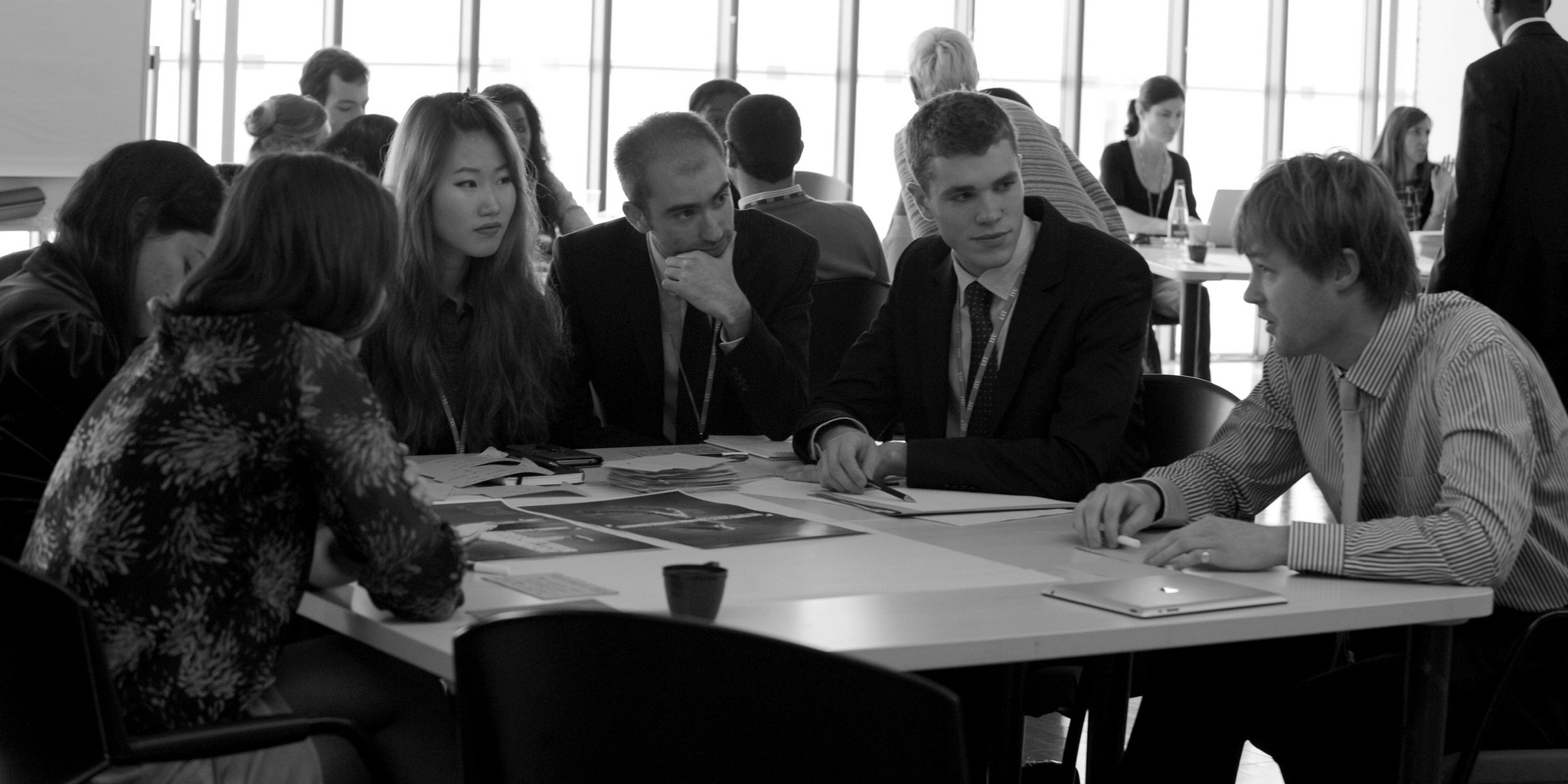
22 de Abril de 2025
Cómo la digitalización está remodelando el concepto de “trabajador ideal”
Explora Artículos Millennials at Work: Myths & Realities
octubre 14, 2016 9 min
There are hundreds of studies, articles, videos and infographics about millennials. Yet, millennials at work is much more than just another trending topic.


It is easy to understand where all that interest in these young people comes from. Millennials represent the future of organizations, they are the youngest cohort among companies’ employees, and tomorrow some of them will become their leaders. In addition, they are a consumer segment with a lot of potential. Their purchasing power is still growing, and companies may want to have among their ranks people who know firsthand what their habits and preferences are. On top of that, companies still need to learn how to manage the longer professional lives and consequences of the progressive aging of the population in the developed world. And all of that in a presence of a war for talent, where companies desperately need people who master new technologies and work systems, mainly young people fresh out of college, or self-trained thanks tothe Internet.
However, millennials are not well understood. To begin with there isn’t even agreement on who is included. For MetLife, Millennials are those born between 1977 and 1994; for McCrindle Research, between 1980 and 1994; for PwC, the London Business School, Young & Rubicam, and Edelman, between 1980 and 1995; for Gallup, Dale Carnegie, and MSW Research, between 1980 and 1996; for Time Magazine and Goldman Sachs, between 1980 and 2000; for Strauss and Howe, between 1982 and 2004; and for Universum and INSEAD, between 1984 and 1996.
Under the term “millennials” we find an extremely heterogeneous reality, but organizations seldom seem aware of this. Companies could get a lot of value from all that diversity if they questioned those clichés, avoiding simplistic solutions, and recognizing that individual differences will always be bigger than generational one.
Millennials are often labeled negatively, probably more than other previous generations. Most of us have heard or read, for example, that these young people are narcissists, that they aren’t loyal to their employers, feel entitled to everything, are impatient, and want to see rapid rewards. Probably you may have also heard that they aren’t hard workers, that they are absorbed in themselves and on their screens, and aren’t aware of what is happening in the world; that they constantly compare themselves to their friends and colleagues, and need continuous positive feedback; that they are not interested in promotions and reject “careerism”; that all of them master new technologies; that they want jobs that have a positive impact in the world; that they are natural collaborators; that they are skeptical of institutions …
But still, we all know young people from that generation who aren’t like that, even remotely.
You may know disenchanted “NEETs” who are not employed, in education, or looking for a job; social-conscious youngsters devoted to humanitarian causes, self-made young entrepreneurs at the helm of disruptive startups, college graduates doing jobs for which they are overqualified, others who decide to invest in a MBA to pursue a career in the corporate world, and some who prefer become public servants. You may also know bloggers, YouTubers, young politicians, or a young lady who decides to be a nun…
Demographically they are all millennials. Most of them are heavy users of smartphones and social media, but besides this, what else do they have in common? Thus, what value should we give to these stereotypes?
The answer: probably the same value we need to give to any other stereotype.
Stereotypes are useful because they help us interpret and make sense of the world. They are shortcuts that help us simplify and systematize the information we receive, so it is easier for us to identify, remember, predict and react to it. In short, stereotypes allow us to act more efficiently and make us feel secure. However, there is a risk of losing sight that those stereotypes are generalizations, and often are biased, so if we take them as if they were universal truths and apply them to our relationships with specific people, we may reach erroneous conclusions and make wrongful decisions. And this is what often happens with millennials in organizations.
The first reason to question our stereotypes about this generation is that these young people don’t have the same opinion of themselves. Even when it seems that millennials hold a more negative view of their generation than other age groups have of their own peer group.
When I talk about this issue in lectures and conferences I usually show a chart with the results of a study conducted in 2013 by Beyond.com and TheCareerNetwork under the title “The-Great-Divide”. They asked more than six thousand young people and HR professionals about their perceptions of the members of this generation, and the results reflect the great divergence between how millennials perceive themselves, and how recruiters regard them.
The numbers speak for themselves:
This enormous difference in views is the reason why the Internet is full of content advising young people what to do to make a better impression to recruiters from previous generations. However, we could also be a bit more self-critical and question to what extent we are prisoners of our stereotypes. We should be aware that these clichés are what they are because we see reality through the filter of our past experience in a radically different job market. And realize they are also influenced by the avalanche of information we receive everyday about these young people. Often this comes as the byproduct of groupthink processes dominated by surveys and studies conducted in very specific socio-economic contexts which are not always exportable to the rest of the planet.
This is the case, for example, of the digital competence of millennials. In my opinion it is overrated. It is true they are more adept with technological gadgets because they have been using them since they were children. But digital competence is not limited to knowing how to use tech devices. Jordi Adell, professor at the Jaume I University in Spain explains that beyond technological competence digital competence also includes the ability to work with information: to search, analyze, evaluate, interpret, create, and disseminate new information. To have the ability to assess which of the many available technological solutions (hard and soft) are best suited to our needs; learning to interpret and to express ourselves in new languages other than text, such videos and infographics. Tobe able to discriminate, be critical, and selective with the many information sources competing for our attention. To know how to transform information into knowledge; and adopting behavioral patterns that help us live and work in a world where, often, real and virtual things are mistaken. And here many millennials still have a lot to learn, no matter how “digital” their elders see them.
We also tend to regard millennials as disloyal to their employers when, as we saw in the results of the survey above mentioned, most of them consider themselves just the opposite. Maybe what happens is that different generations have different understandings of what “loyalty” means. It is a matter of fact that many employers still expect loyalty in return for nothing, but those days are long gone in the minds of these young people, especially the most qualified ones. Unlike previous generations, many of these young people don’t care about the number of jobs listed on their resumes, or the possibility an old ape labels them as “job-hoppers”; they seek jobs that provide them with a sense ofpurpose; and are willing to sacrifice their personal life only to a certain extent. Moreover, what unconditional loyalty can employers expect from the members of a generation that are offered precarious jobs with small salaries, and who have witnessed in person, or through the experience of their parents, how the myth of a job for life blew up?
Another stereotype we should challenge is the idea that millennials are the first global generation in history. It is true that the Internet has shortened distances, and that societies are more multicultural. We find the same fashion stores and the same fast food outlets in all major cities of the world, but the socioeconomic reality experienced by young people from different corners of the planet, and the stories that have been passed to them from previous generations are very diverse, and so are their perceptions and attitudes towards work.
A study made by Universum with the collaboration of Insead’s Emerging Markets Institute and the Head Foundation, under the title Understanding a Misunderstood Generation, sheds light on this topic. For example, in Africa, 4 out of 5 millennials think they will enjoy a better standard of living than their parents. However, in Western Europe only 1 out of 2 think the same (and in Spain that figure goes down to 13%). Another example: in Africa 41% of young people involve their parents in their career decisions, while in Eastern Europe that percentage is just 12%. Another one: In Asia almost 60% of them expect to retire before age 60, while in Europe only 15% of millennials expect such a thing. Another one: in North America and Western Europe what young people feel appealing of managerial roles is the opportunity to influence the organization, while in Eastern Europe are the higher salaries, and in Middle East, having power to make decisions. And just another one: if they could choose their boss, young Americans and Western Europeans would choose empowering leaders, while Eastern Europeans still prefer functional experts in their area, who evaluate them with transparent and objective criteria.
Another reason for us to challenge stereotypes about millennials is that, on the theory, a 36 year old who has already been working for 15 years is as millennial as a person who is 20 and still entering the labor market or finishing her studies. But considering how fast the world has changed in the past 15 years it is very unlikely thattheir worldviews (including their perceptions of work) are homogeneous. In Spain, for example, older millennials started their work lives in a moment where Spain had the second highest net migration rate in the world, young people abandoned school to work in construction, wages grew year after year, and banks gave mortgages to its clients not only to buy houses at exorbitant prices, but also to buy cars, or to go on vacation. By contrast, younger millennials have had to search their first jobs in a very different scenario. A country with a youth unemployment rate above 50%, where qualified young people migrate in search of opportunities, the number of “NEETs” has grown into a social problem, their parents have become unemployed, and social inequalities are increasing alarmingly…
In conclusion, under the umbrella term of “millennials” we find an extremely heterogeneous reality, but organizations seldom seem aware of this. Following stereotypes is way easier, but companies could get a lot of value from all that diversity if they questioned those clichés, avoiding simplistic solutions, and recognizing that individual differences will always be bigger than generational ones.
__________
Photo by Rowan Farrell under a creative commons license.
¿Te ha gustado?
¿Ya eres usuario? Inicia sesión aquí